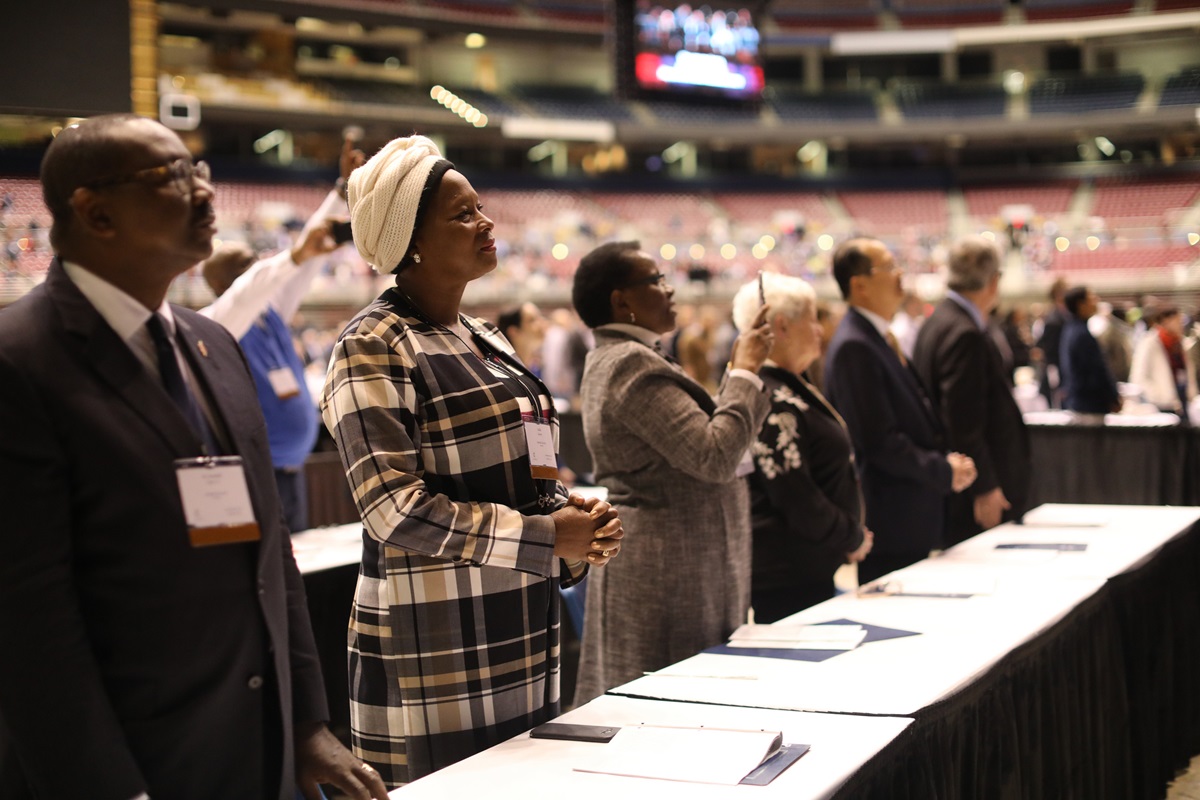Two General Conference 2019 petitions related to potential plans for the future of The United Methodist Church have been declared unconstitutional by the denomination’s top court.
The decision was in response to a petition for a declaratory decision received by the United Methodist Judicial Council Feb. 22 from the Council of Bishops.
Petition 90052 is unconstitutional, the court said in Decision 1375 “because it infringes upon the right of the annual conference to vote on all matters relating to the character and conference relations of its clergy members,” as provided under Paragraph 33 of the Constitution.
A second petition, Petition 90078, is unconstitutional because it would create a global episcopacy committee, the decision said. That petition is part of the Modified Traditional Plan.
Petition 90052 would add language eliminating “the entire supervisory response process” for complaints related to violations of the denomination’s prohibitions against homosexuality and the creation of a special committee on investigation to handle judicial complaints. The prohibitions against being a “self-avowed practicing homosexual” or performing same-sex marriage or union celebrations are found in Paragraph 2702.1(b).
But the council said that both Judicial Council Decision 1296 and Paragraph 33 “clearly stipulate” that the committee on investigation for such complaints resides with an annual conference.
“By removing this body from the annual conference and placing it under the authority of the General Conference and Colleges of Bishops, Petition 90052 infringes upon the constitutional right of an annual conference, particularly of the clergy and lay members of the committee on investigation, to vote on all matters relating to the character and conference relations of its clergy members, and is, therefore, unconstitutional.”
Creating a global episcopacy committee through Petition 90078 to handle requests for “transfers of bishops across jurisdictional or central conference lines” also is problematic, Judicial Council said.
While the constitution permits transfers of bishops from one jurisdiction to another under specific conditions, “there is no parallel provision for transfers of bishops along central conference lines,” the decision said. “It is beyond General Conference’s power to fill this gap.
“Absent clear grant of constitutional authority, transfers from one central conference to another central conference and from a jurisdictional conference to a central conference are constitutionally prohibited. The creation of the global episcopacy committee would also blur the lines between the responsibilities of the jurisdictional committees on episcopacy and those of the central conferences.”
The ruling also noted that the Book of Discipline stipulates “that the complaint process against bishops is handled by the jurisdictional conference and the jurisdictional committee on episcopacy.” Placing that responsibility under a global episcopacy committee would be unconstitutional, the council said.
Bloom is the assistant news editor for United Methodist News Service and is based in New York.
Follow her at https://twitter.com/umcscribe or contact her at 615-742-5470 or newsdesk@umnews.org. To read more United Methodist news, subscribe to the free Daily or Weekly Digests.
Like what you're reading? Support the ministry of UM News! Your support ensures the latest denominational news, dynamic stories and informative articles will continue to connect our global community. Make a tax-deductible donation at ResourceUMC.org/GiveUMCom.




